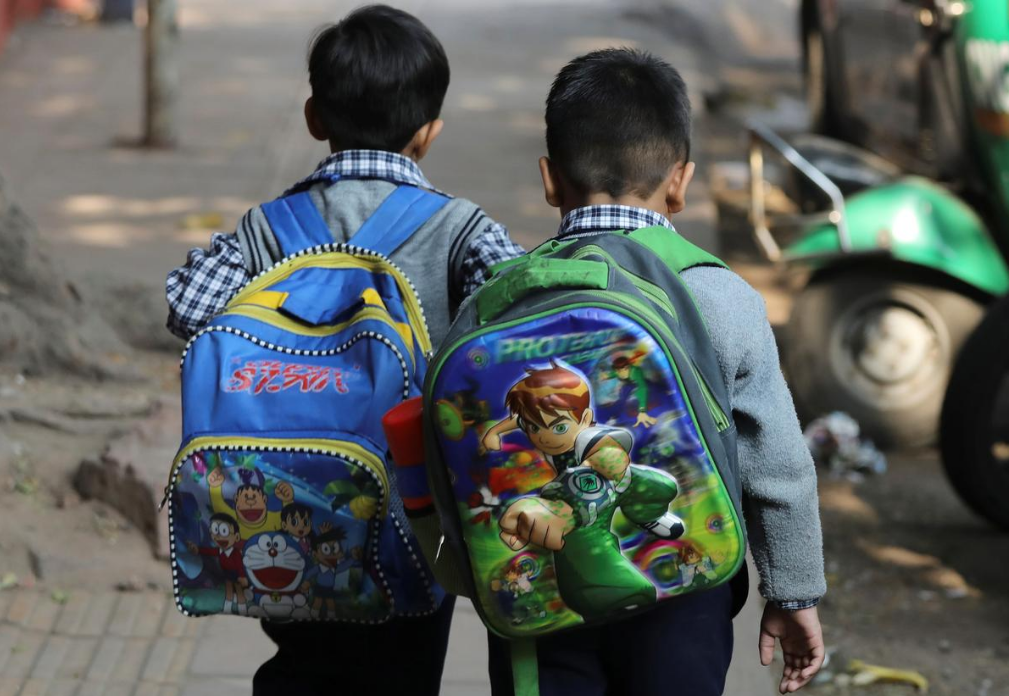
Students wearing face masks wait to sit vocational higher secondary education exams that had been postponed amid the pandemic, inside a school in Kochi, India, May 26, 2020. /Reuters
Students wearing face masks wait to sit vocational higher secondary education exams that had been postponed amid the pandemic, inside a school in Kochi, India, May 26, 2020. /Reuters
India has adopted a new National Education Policy (NEP-2020) for both schools and colleges, laying down a roadmap for the next two decades. The new policy has evoked mixed reactions with some seeing the reforms as groundbreaking and others cautioning that "the devil lies in details."
Under the policy, the annual budgetary allocation will be increased from 4.3 percent to 6 percent of gross domestic product, preliminary students will be taught in their mother tongue or regional language, separations between streams will be abandoned and foreign universities can set up campuses in India.
Giving in to the demands of southern states, particularly Tamil Nadu, which has been alleging that there was always a pressure from the north of India to impose Hindi as the national language, NEP-2020 ensures that no language will be imposed on anyone even as it sticks to the "three-language formula," which was formulated in 1968 and recommended that people learn Hindi, English and the regional language in non-Hindi speaking states.
Minister of Education Ramesh Pokhriyal said that all languages will be taught in an enjoyable style and teaching for classes at least up to five-grade will be in mother tongue or regional language.
Criticizing NEP-2020 for its move to permit foreign direct investment in education, some parties slammed the new policy attempts to "centralize, communalize and commercialize" the education system, saying the central Government has strayed from the key idea of universalizing education and instead focused on creating education markets.
Delhi University Executive Council member Rajesh Jha said the policy will shift the education system from grant-based to loan-based and promote private players and foreign universities, leading to "exorbitant" tuition fees.

Schoolchildren walk along a footpath in New Delhi, India, November 27, 2018. /Reuters
Schoolchildren walk along a footpath in New Delhi, India, November 27, 2018. /Reuters
Others fretted that although the policy talks of increasing public investment in education, it lacks an exact time-frame. An editorial in English daily "Hindustan Times" on Friday cautioned that increasing investment will not be a panacea to improve the overall quality of education.
"There has to be realistic budgeting, flexibility in tweaking of priorities and a strong leadership," it said.
According to the editorial, many experts feel that while the NEP talks of social inequalities at length, its political and economic goals are "diffused." the paper further suggested that the central Government must take state governments on board and allow a full-fledged discussion in parliament on the new policy.
D. Ramakrishna Rao, the president of Rashtriya Swayamsevak Sangh, a right-wing group also known as National Volunteer Organisation, told The Times of India that the new policy is based on past experiences, present challenges and future needs. Rao praised the NEP as a comprehensive effort by the government.
"The draft was finalized after six years of hard work which involved a wide range of consultation and responses from more than 100,000 villages," Rao said.
Under the new policy, the concept of streams between arts and sciences, between curricular and extra-curricular activities, between vocational and academic streams will be abandoned. All subjects are considered equal and students can select subjects of their liking across streams.
Meeta Sengupta, an educator, said the toughest criticism the new policy will face is that it is "idealistic."
"This gap between vision and tasking will need more than action plans and implementation strategy. The middle school goals seem wonderful but impractical," she added.
(With input from agencies)